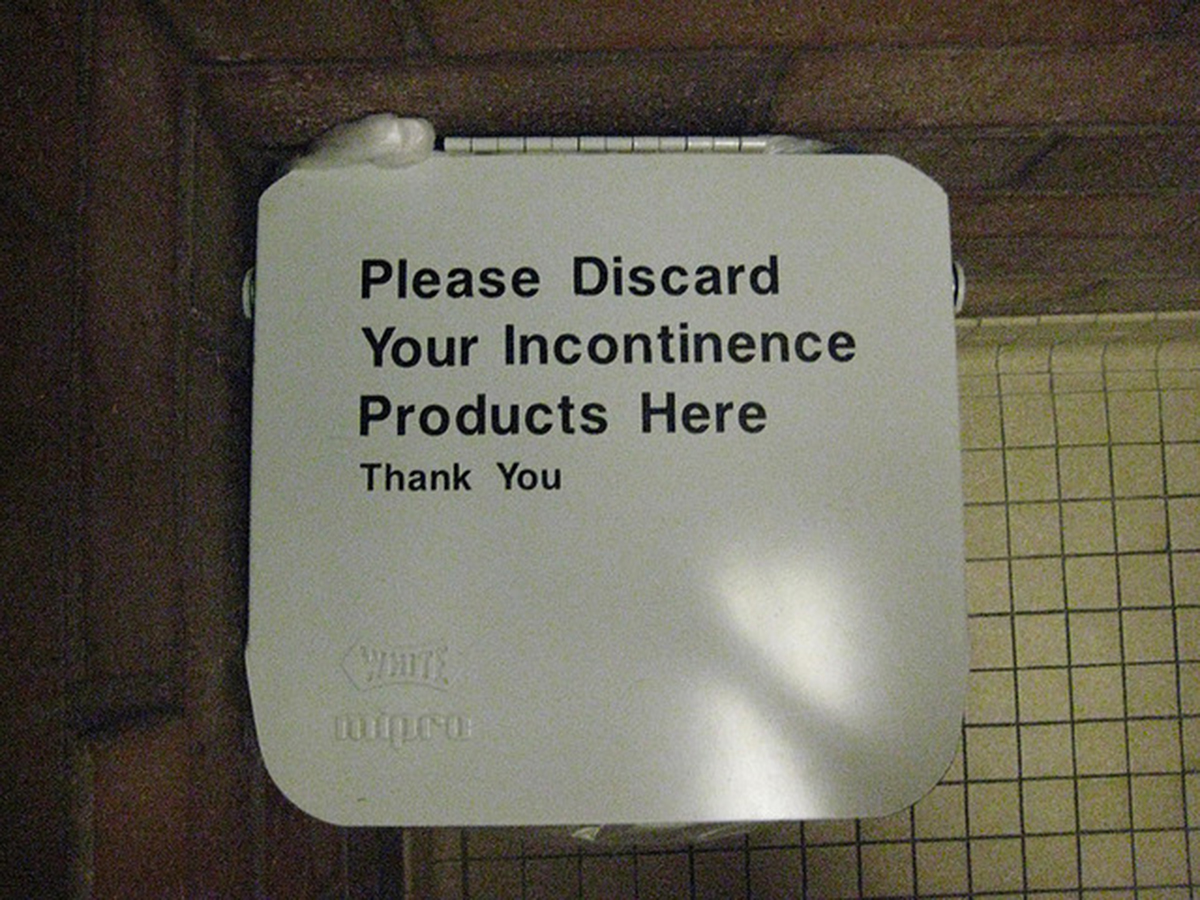"I'm only 48 — too young, I think, for incontinence diapers. But there's no denying the fact that I'm experiencing regular leakages, and they affect my life. Sneezing, laughing, or coughing usually bring these leakages on. 'Oh no, here we go again,' I think, and then out it comes. I've tried wearing panty liners, but sometimes even they don't do the trick. It's embrassing. What can I do about it?"
Such is the dilemma posed to us by Wanda, a woman who had three children and leads an active, busy life. Wanda suffers from urinary leakages brought on by events that put pressure on the abdomen; she hasn't lost complete control of her bladder, and uses the toilet successfully when coughs, sneezes and uncontrollable laughter doesn't interfere. What's wrong with Wanda?

What Is Stress Incontinence?
Incontinence, the unintentional loss of urine, is pretty much always stressful. Stress incontinence doesn't refer to how losing urine makes you feel, though, but to what causes it. When physical events that place pressure on the bladder — like the sneezes, coughs and laughs that make Wanda "drip", but also heavy lifting or exercises — lead to urinary loss, that's stress incontinence. It's far more common in women than in men, and some people also experience urinary loss upon standing, exiting a car, or when they have sex. It differs from urge incontinence, which is caused by inappropriate bladder contractions and often involves a keen sense of needing to pee.
Weakened pelvic floor muscles can be too blame, but stress incontinence can also be caused by a problem with the sphincter muscle that opens and closes the bladder. While injury to the urethra or some medications can be responsible, many women will find that their stress incontinence has an awful lot to do with childbirth. Pelvic prolapse is a risk factor, but so is simply having given birth vaginally more than once. In men, prostate or pelvic surgery are often to blame.
Smoking, being obese, drinking lots and lots of coffee, and a hormonal imbalance can all play a role in causing stress incontinence as well.
You Deserve To Have Your Stress Incontinence Fixed
Urinary leakages can lead to a sore genital area that's red, inflamed, and prone to infections. That's enough of a reason to seek medical help, but stress incontinence can also have an enormous impact on your self-confidence. You may feel old and embarrassed, even to the point where your urinary leakages make you depressed and prevent you from going out in case it happens again.
READ Urge Incontinence Treatments
"At first I laughed it off," Wanda says, but she also admits that "the worse the problem got and the longer it went on, the deeper the impact my 'little pee problem' had on my life." Her kids make fun of her. Her urinary leakages affect her love life. She worries about it at night, and finds it difficult to conceal at work, particularly when she has a cold. Thankfully, stress incontience is something that can be treated.
Treating Stress Incontinence
Diagnosing Stress Incontinence
Anyone who has been experiencing urine loss upon physical impact on a regular basis has a great reason to see their primary care physician. As usual, the consulation will start off with a chat about your symptoms. If you can, prepare a list that details when your symptoms first started, when they occur, how much urine you lose, what medication you use, and anything else that seems relevant. Since your doctor may ask you to keep a journal in which you detail your urine loss incidents, you may preempt that by keeping such a journal for a week or so before you even go to the doctor. This will help your doctor understand the relevant patterns.

Over the course of the diagnostic process, you can also expect a urine sample test, a physical checkup, and a so-called urinary stress test in which the doctor checks what happens when you cough. Urodynamic tests look into the functioning of your bladder in more detail, checking its capacity and pressure, and assessing how much urine is left inside the bladder after you empty it.
Treating Stress Incontinence And Kissing Bladder Leakages Goodbye
The good news is that your urine loss can probably be remedied. Now, there are an awful lot of treatment options for this problem, and your doctor is most likely to suggest a combination.
Pelvic floor exercises, like Kegels, serve to strengthen the pelvic floor muscles, something that will help enormously if your leakages are caused by a weak pelvic floor. This is especially likely to help a lot if you started leaking after giving birth.
A pee-and-drink schedule may be instituted as well. This may involve your doctor advising you when and how much to drink, as well as asking you to steer clear of alcohol and coffee, which can make the problem worse. The toilet schedule is likely to involve you taking more frequent bathroom trips that will make it less likely your bladder contains a lot of urine when you cough, laugh, or do anything else that may induce your symptom.
Furthermore, your doctor will probably ask you to lose weight if you're obese, and to stop smoking if you are a smoker. If you have a respiratory condition that involves a lot of coughing, treating that can also help.
Sometimes, however, more radical treatment options are required. A vaginal pessary can help you if you suffer from prolapse, and urethral inserts can also sometimes be used to reduce or halt leakages. Then, there's surgery. Surgery won't be the first line of treatment in most cases, but it's available where needed. These procedures serve to support a weak sphincter or to artificially help it function.
READ Fecal Incontinence: Causes, Diagnosis, Treatment
If you're suffering from stress incontinence, just going to the doctor can seem like a huge step to take. Some people prefer to try to fix the problem by doing Kegel exercises by themselves first, and that may indeed nip urine loss in the bud. If it doesn't, though, know that stress incontinence is a very common problem — your doctor won't be phased by it, and you'll soon be accessing treatment that will make your incontinence a thing of the past.
- Photo courtesy of dm-set: www.flickr.com/photos/dm-set/3641789129/
- Photo courtesy of gus/: www.flickr.com/photos/gus/2744908737/


Your thoughts on this